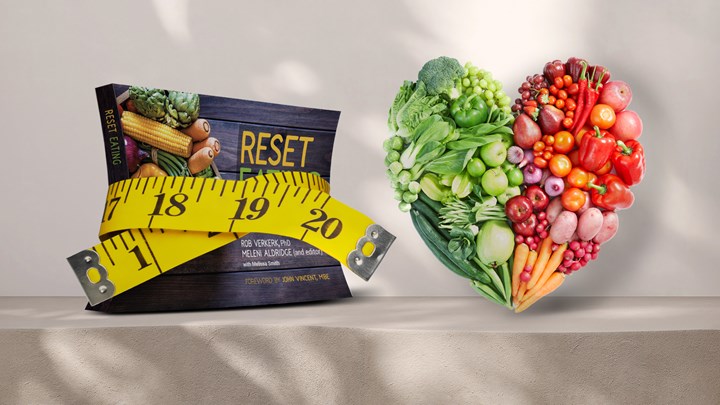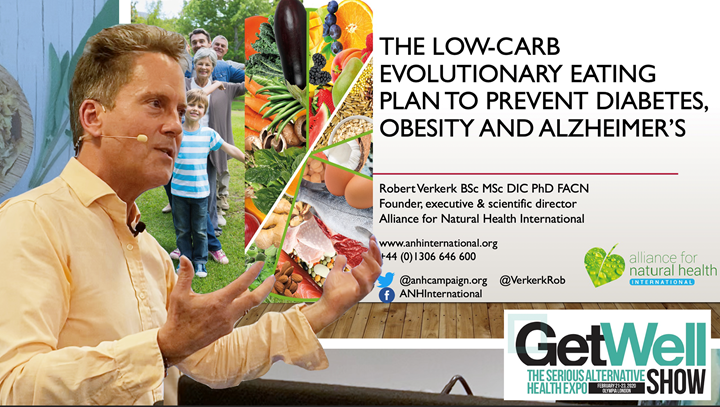Two pieces of news hit the UK airwaves in the last week that catapulted the ANH-Intl team into high gear at the start of 2019.
The first was a sugar-shocker. Did you know that by the age of 10, UK children will have already exceeded the maximum sugar intake considered safe for an 18-year-old?
The second was the manipulation and misuse of information by a British weight-loss ‘institution’, Slimming World. We say, move with the nutrition research times, Slimming World, don’t play metabolic Russian Roulette with your customers to protect profits!
We didn’t have long to rest on our festive laurels. It was time to get digging…
What the restaurant industry doesn’t want you to know
We all know sugar poses a huge risk to our health. We also know that cutting out or even down on sugar is too big an ask for many – especially for our ‘ticking time bombs’, the children. That’s normal. We’re genetically programmed to eat (even crave) calorie-dense foods like sugar and fat. Something the food industry understands only too well.
We’re doubly vulnerable when our bliss point of sugar and fat is hit together. Think about the smell of warm donuts... Giving in too frequently puts you in the unwitting ‘pawns for profit’ basket that Big Food and Big Pharma rely on. With the all the talk on sugar reduction there’s certainly noises from Big Food that it’s got its act together and is moving things in the right direction. So we did a little early-January trawl to see where some of the high street restaurants had got to on this.
What we found shocked us (and we’re not easily shocked!)
A single savoury meal from a high street restaurant or food chain consumed on a daily basis could push you towards life threatening metabolic diseases such as obesity, type 2 diabetes or even autoimmune disease.
Here’s just a couple of stand-out appalling examples:
- Wagamama’s firecracker chicken = 36.7g sugars per serving
- Domino’s Texas BBQ - Italian Style Crust (small) = 44.3g sugars per portion (whole pizza)
Going further afield, check out Buffalo Wild Wings, which has outlets in the United States, Canada, India, Mexico, Oman, Panama, Philippines, Saudi Arabia, United Arab Emirates, and Vietnam
- Buffalo Wild Wings medium size boneless wings with Asian Zing sauce, weighing in at an astonishing 56g of sugars (or you could ‘go large’ with a sickening 75g sugars!)
As we researched high sugar savoury meals we found those containing chilli were among the worst offenders.
It’s takes just 50g (12 tsp) of added sugars per day to cause metabolic derangement. Even the UK’s conservative, mainstream, Scientific Advisory Committee on Nutrition (SACN) recommends that free sugars make up no more than 5% of daily energy intake. If you eat around 2000 kcal/day, this means you should be eating less than 25g of free sugars daily.
Opt for just one of these savoury meals from well-known international food chains and you’re in trouble before you’ve eaten anything else in your day!
What are the likes of Wagamama, Domino’s and Buffalo Wild Wings playing at? Clearly not paying any attention to any corporate social responsibility (CSR) strategy.
Shame on you Slimming World
If getting lean and mean is part of your vision for 2019, our advice is to tread very carefully before you join up with Slimming World. They may have been around for 50 years, but sadly they’ve not updated the dietary regime their business model relies on. Built on an outmoded high carb, low fat philosophy, we are incredulous at the outright manipulation of the science on carbs in favour of changing the dietary programme. It’s sheer propaganda dressed up as rigorous science and it has the potential to put some at risk of developing chronic disease. We find this completely unacceptable in light of current science.
Nutritionist and Head of Nutrition and Research at Slimming World, Dr Jacquie Lavin had her article, ‘13 ways carbs can help you lose weight’, republished in the Daily Mail. It amounts, in our view, to a dire disservice to current and future members. A disservice that could further dysregulate a deranged metabolism towards type 2 diabetes and Alzheimer’s disease.
The letter we’ve written to Slimming World is at the base of this article. We’ll let you know as and when we get a response. If anyone feels moved to offering another opinion, here’s the link to its contact page.
‘Carbfusion’ – who’s really confused about low carb?
In the rush to demonise sugar, the damage to our health from carb heavy diets (particularly refined carbs and sugars) is being pushed to one side. Despite the ongoing sounding of alarm bells over our sugar consumption, many people don’t understand the impact of what they eat on their bodies.
Amongst the confusion, Slimming World has taken the opportunity to publish survey-based ‘research’ that has been designed in such a way that it allows the company to advocate weight loss diets with unlimited starchy carbohydrates. Add to that a daily allowance of 10-15 syns such as sugar-laden Cadbury's Curly Wurly’s (13g sugars per 26g bar) or Fudge Bar’s (16g sugars per 25.5g bar), Skinny Whip bars (10g sugars per 25g bar) or a 4 finger Kit Kat (21.3g per bar) and you could be smashing the SACN’s daily limit of 25g free sugars!
French fries and baked potatoes – as much as you like – anyone? In the same breath, Slimming World is dissing low carb high fat diets saying they’re too difficult to follow.
But Slimming World’s ‘research’ is nothing more than a couple of Slimming World and YouGov surveys designed to gloss over and, at worst, misrepresent science with clever PR aimed at maintaining or increasing profits. Again, in the face of the current science about the existing obesity epidemic, where’s Slimming World at with its CSR?
New Year resolution fodder
If you’re planning to make 2019 the year you take back control and opt for educated, self-selected, informed, personal choice, here are some ideas on the food front:
- Cook more at home using minimally processed, wholefood ingredients with lots of colourful plant-based elements. See our Food4Health page for more ideas and information. Experiment wildly, have fun and eat in together!
- Boycott restaurant/food chains, such as Wagamama, Domino’s and Buffalo Wild Wings that exceed in a single savoury portion the 25g threshold of sugars (e.g. as set by SACN) in a single savoury meal
- Boycott companies that use propaganda dressed up as rigorous science to justify their carb-based business models, such as Slimming World
- If you have kids – follow our eight steps to help prevent/break their sugar addiction to futureproof their health
- Forget calories – think quality. If eating out, focus on minimally processed foods with plenty of fibre- and micronutrient-rich veggie sides. Minimise starchy carbs and steer clear of sugar laden sauces.
Enjoy!
Letter to Slimming World from Robert Verkerk PhD, founder, executive & scientific director
I was most disappointed to read the article by Dr Jacquie Lavin entitled "13 ways carbs can help you lose weight" originally published on Healthista and re-published in the Daily Mail on 3 January (online).
The view that potatoes, rice and pasta can be consumed in any amounts is deeply confusing to the public as it begins to understand the impact of excessive reliance on starchy and refined carbs. Does this mean you can consume French fries or baked potatoes in any amounts and expect to lose weight? Why no reference to the type or cooking method of potatoes, rice or pasta when consumption of these in different forms can lead to profoundly different glycaemic responses.
Why Slimming World doesn't suggest free consumption of fibre-rich vegetables, rather than potatoes, rice and pasta, is anyone's guess; but we presume this is down to your need to defend the Slimming World business model that is still high carb, low fat - an ideology that is now accepted as out of line with the current science. This is more correctly positioned in a recent publication by David Ludwig et al in Science (16 Nov 2018: 362(6416): 764-770).
Moreover, the reference in Point 1 "Carbs fill you up" to Lucy Chambers and colleagues review cited in point 1 (Trends in Food Science & Technology, 2015; 41: 149-160) is likely to be misleading to a layperson. Dr Lavin has therefore misrepresented the science. Its inclusion in this section implies that the review provides supporting evidence for carbs being the key macronutrient involved in satiety. In fact, the review article specifically reinforces the widely held view that protein is the most important macronutrient. It of course also shows the supportive role of carbs and fat, the latter in smaller amounts by energy, to optimise satiety. But the review specifically refers to the importance of non-starch components, namely fibre, which can be found in significantly higher amounts in above-ground vegetables such as legumes and brassicas.
We urge that Slimming World reconsiders the type of information that it allows to be published in a national newspaper. We also suggest that you recognise that your company, with this kind of misrepresentation of the science, is actually contributing to, not ameliorating, public confusion about the role of carbs coupled with low fat in the spiralling obesity and type 2 diabetes epidemic.
Having reviewed your ready-made meals, we believe your company would do well to do some reformulation that brings your offerings more in line with current nutritional science. It might also help to make your business more sustainable in the long-term.
We are putting a story up on our website at www.anhinternational.org later today which draws attention to our concerns about Slimming World's publicity.
I look forward to hearing from a representative of your company, or Dr Lavin, personally.
Thank you, in anticipation.
Robert Verkerk PhD
Founder, executive & scientific director








Comments
your voice counts
10 January 2019 at 1:01 pm
Rob, great letter to Slimming World.
However, they are a business and therefore aren't going to want their 'customers' to lose weight and keep it off by following the better low-carb/high-fat diet, are they?! So they have to spout this rubbish in order to attract those customers who are carb-addicted and therefore going to struggle with weight for ever (and need companies like Slimming World). The fact that those people may end up with diabetes is, of course, nothing to do with Slimming World's advice...
My own story of following the low-fat advice that we were given in the late 70s is that I ended up with gall bladder disease at about age 45. I had been a radiographer in my early adult life and knew how the gall bladder functioned, but never really thought about my diet and its relationship to my gall bladder...until it eventually malfunctioned. Then it struck me - the poor little organ had never had to empty itself (or rarely!) and so the bile inside was getting more and more 'stagnant' (for want of a better description) and crystallising into stones (or 'gravel' as it was described post-op). That realisation made me question the whole low-fat advice and, in time, once the whole low-fat/high-carb myth was exposed, I realised I was right!
10 January 2019 at 6:15 pm
I have had gall stone problems and the main advice I have been given is to eat less fat. I think thatVanessa is absolutly right - the gall bladder needs excercising so on has to eat fat. I have managed to reduce the size of my gallstones through herbs and homeopathy and no longer cut down on the butter!
Your voice counts
We welcome your comments and are very interested in your point of view, but we ask that you keep them relevant to the article, that they be civil and without commercial links. All comments are moderated prior to being published. We reserve the right to edit or not publish comments that we consider abusive or offensive.
There is extra content here from a third party provider. You will be unable to see this content unless you agree to allow Content Cookies. Cookie Preferences